An update from Jaeyeon Choe, Phd (Department of Events & Leisure).
Having explored religious tourism and meditation for over 7 years in the United States, I was excited to collect data on spiritual tourism and outcomes of meditation in Chiang Mai, Thailand in August 2016 so as to incorporate a new geographical context. I was also invited as a visiting researcher at the Centre for Asian Tourism Research at Chiang Mai University, where a working space and library access were kidndly provided for my research activity.
While my Ph.D., had focused on the nature and outcomes of meditation in the United States, I always wanted to replicate it in a more ‘authentic’ Buddhist destination to see if/how the meditation practices and benefits differ from the U.S. Four years after my PhD, I finally found myself ‘stalking’ research informants in the Old City, Chiang Mai, where the Buddhist temples are concentrated!
The first week of data collection was tough. Approaching the right people at right time and place to build rapport with them was a challenge. I started going to meditation sessions, which led me to hanging out and chatting with particiapnts. This finally lead to formal interviews. Being a participant was key, even though I did not officially do participant observation. My history of meditation practice was also a good ice-breaker. I ended up meditating every day with my ‘potential’ informants and after a few weeks, I was able to finish my in-depth interviews. I learned a lot about the phenomenon.
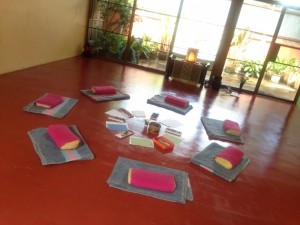
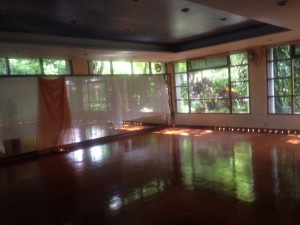
One striking thing, was that informants shared more interesting stories when my digital recorder was off, as informants shared sensitive issues and some life events. Many of the western travellers who engaged in meditation in Chiang Mai wouldn’t call themselves tourists, nor Buddhist! In fact, many of them have even moved to Chiang Mai to meditate ‘full-time’. However, the movement wasn’t fully about “authencity.” An informant who moved to Chiang Mai from San Diego argued that the meditation experiences in Chiang Mai is not more authentic than the American meditation experiences. Explaining, the motivations to move to Chiang Mai is an area I am still exploring.
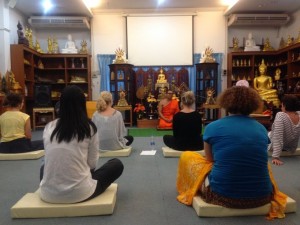
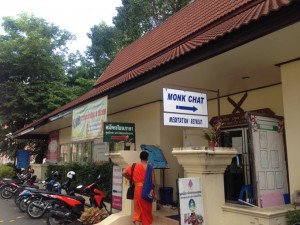
I met several Thai Buddhist monks who helped my research, and who speak fluent English. I asked them, “Monk, why and how do you speak English fleuntly?” They said, becase of the number of western travellers having been bothering them with questions about meditation! A monk told me that approximately 15 years ago, he was tired of being approached by random western travellers asking him about meditation and monastic life, etc. He decided to create a ‘monk chat’ program and free meditation retreats for western tourists/travellers. He now has 5000 meditation visitors every year! There are also several centers in Chiang Mai who offer one month, two months long meditation retreats and attract many westerners. Why? I think I have found some of the answers from my data collection journey.
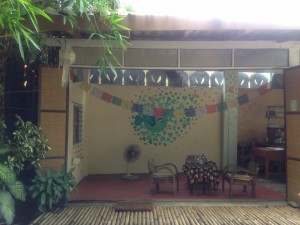
I like to express my appreciation to Chiang Mai University, Wat Suan Dok temple, local monks and all other informants. Some informants were too kind being interviewed for more than two hours, and some have voluntered for follow-up interviews via Skype. If they are doing all this voluntarily, meidtation must have helped them to develop compassionate minds, right? 🙂
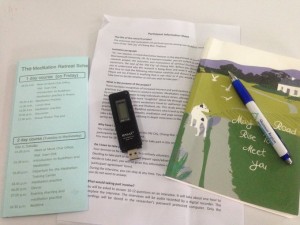
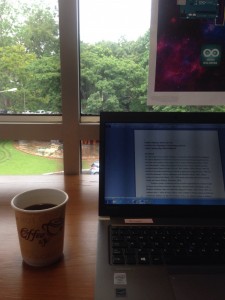
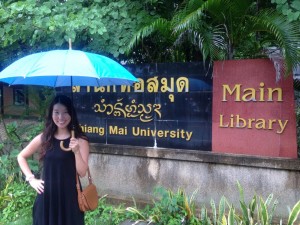

















 From Sustainable Research to Sustainable Research Lives: Reflections from the SPROUT Network Event
From Sustainable Research to Sustainable Research Lives: Reflections from the SPROUT Network Event REF Code of Practice consultation is open!
REF Code of Practice consultation is open! BU Leads AI-Driven Work Package in EU Horizon SUSHEAS Project
BU Leads AI-Driven Work Package in EU Horizon SUSHEAS Project ECR Funding Open Call: Research Culture & Community Grant – Apply now
ECR Funding Open Call: Research Culture & Community Grant – Apply now ECR Funding Open Call: Research Culture & Community Grant – Application Deadline Friday 12 December
ECR Funding Open Call: Research Culture & Community Grant – Application Deadline Friday 12 December MSCA Postdoctoral Fellowships 2025 Call
MSCA Postdoctoral Fellowships 2025 Call ERC Advanced Grant 2025 Webinar
ERC Advanced Grant 2025 Webinar Update on UKRO services
Update on UKRO services European research project exploring use of ‘virtual twins’ to better manage metabolic associated fatty liver disease
European research project exploring use of ‘virtual twins’ to better manage metabolic associated fatty liver disease